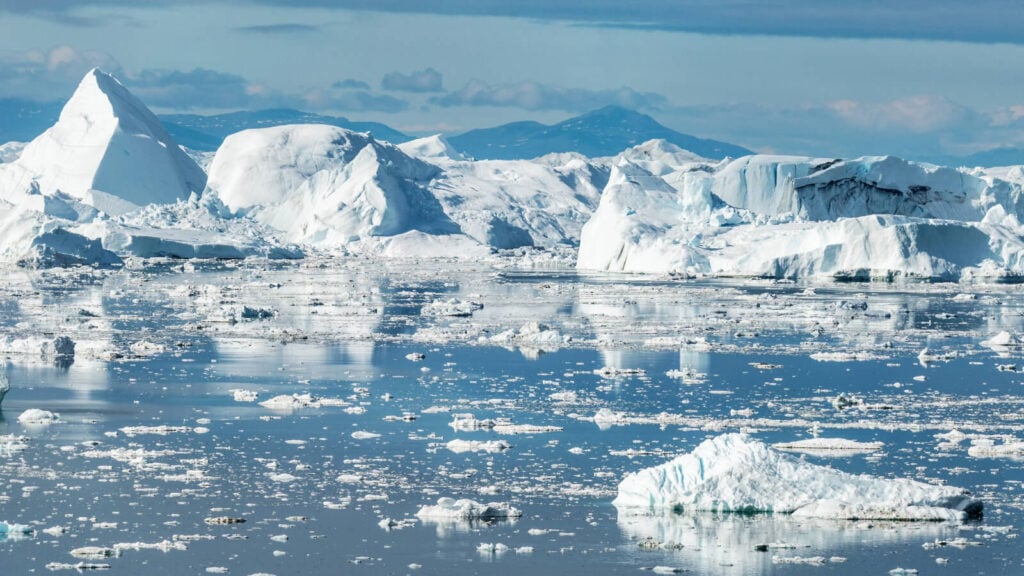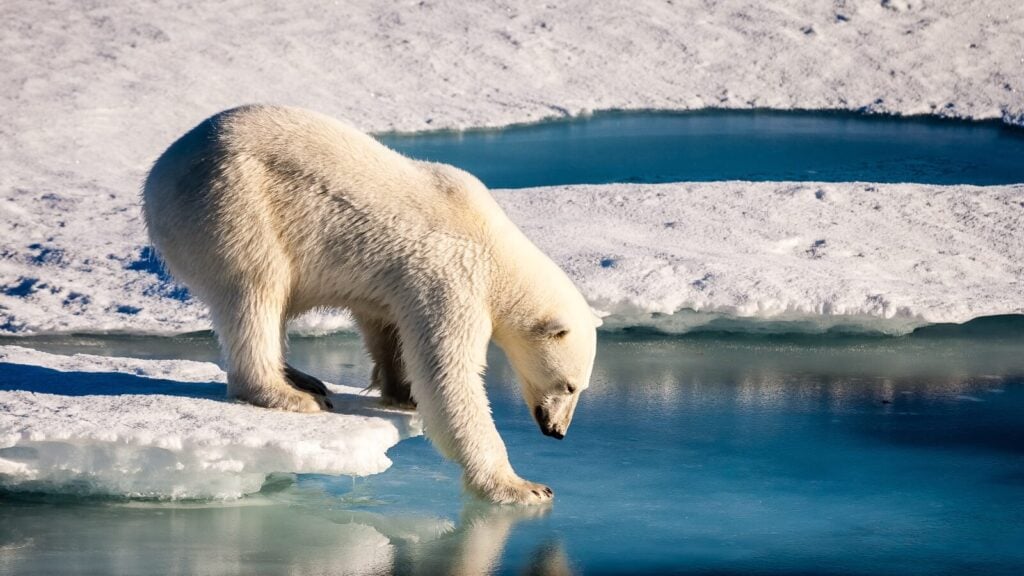Earlier this month, scientists observed rain at the highest point on the Greenland Ice Sheet. It’s the first time in recorded history that rainfall has occurred there. The event alarmed experts around the world, who have said that it’s a sign of the accelerating climate crisis.
‘This is unprecedented’
On August 14, the US National Science Foundation’s summit station recorded rain on the 3,216-meter (10,551ft) peak that lasted for several hours.
An estimated 7 billion tons of water fell across the ice sheet. There are only two ice sheets in the world (the other is in Antarctica).
Up to 337,000 square miles (872,000 square kilometers) of ice melted along with the Greenland weather event. According to the U.S. National Snow & Ice Data Center (NSIDC), the amount of ice lost in that one day equates to the average amount lost in one week for the same time of year.
Ted Scambos is a senior research scientist at the National Snow and Ice Data Center at the University of Colorado. He said to CNN: “What is going on is not simply a warm decade or two in a wandering climate pattern. This is unprecedented.”
Martin Stendel, a researcher at the Danish Meteorological Institute, told AFP: “This is an extreme event as it may never have happened before.”
The rainfall marked the latest date in the year that above-freezing temperatures had ever been recorded at the summit station.
Stendel revealed that in the past 2,000 years, temperatures at the peak have risen above freezing just nine times. Three of those events have been in the past 10 years.
Sea level rise

In 2019, around 532 billion tons of ice melted in Greenland, CNN reports. A heat wave in July resulted in nearly the entire ice sheet’s surface to start melting. This led to a permanent global sea level rise of 1.5mm.
“We are crossing thresholds not seen in millennia, and frankly this is not going to change until we adjust what we’re doing to the air,” said Scambos.
A 2020 study, led by researchers from the Universities of Liège and Oslo, looked at ice melt in Greenland. Researchers found that the melting of the massive ice sheet is projected to contribute to a 10 to 18 centimeter rise in sea levels within the next 80 years. This is 60 percent faster than the previous calculation.
Human impact on the climate crisis
The UN’s Intergovernmental Panel on Climate Change (IPCC) released a report earlier this month that outlined the alarming trajectory of the global climate emergency.
UN Secretary-General António Guterres said the report must be treated as ‘a code red for humanity’. He added: “The alarm bells are deafening, and the evidence is irrefutable.”
The IPCC Working Group I Co-Chair, Valérie Masson-Delmotte, said the ‘role of human influence on the climate system is undisputed’.
Read more about what you can do to help fight the climate crisis here.






